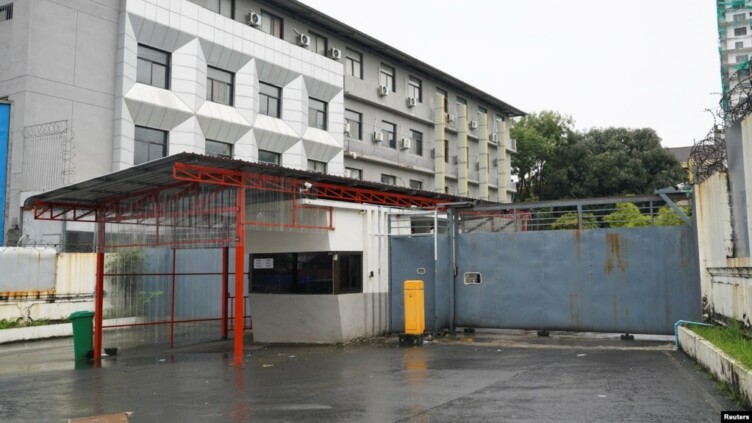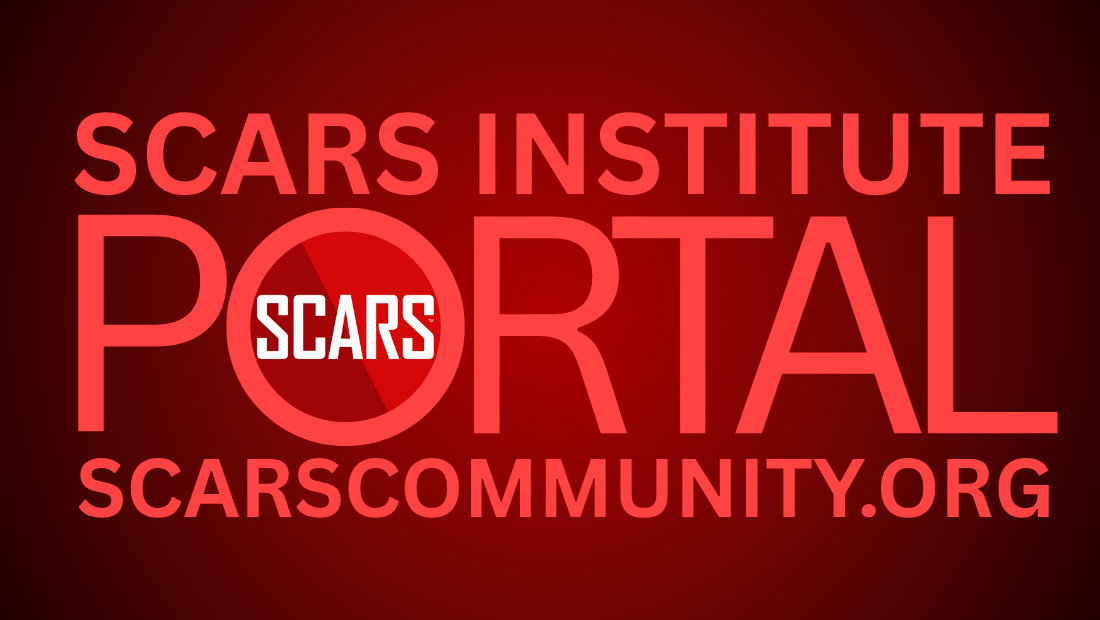Cambodia’s Struggle Against Scam Slavery Scams: A Year After Crackdown, Scams Persist
Scam Slavery Call Centers in Cambodia Still Thriving!
Authors:
• SCARS Editorial Team – Society of Citizens Against Relationship Scams Inc.
• VOA
About This Article
Despite Cambodia’s government crackdown on cyber-slavery scams over a year ago, recent reports from anti-human-trafficking groups suggest that such scams are still thriving, challenging the official narrative of significant progress in addressing human trafficking in Cambodia.
Despite the government’s efforts to curb human trafficking by raiding scam compounds and making arrests and deportations, NGOs and international observers expressed skepticism about the effectiveness of these measures. Many scams reportedly relocated temporarily during the crackdown and have since resumed operations in Cambodia, making it difficult for authorities to identify and rescue victims.
Observers note a resurgence of scamming activity in Sihanoukville, fueled by regional factors such as crackdowns in Myanmar and Operation 1027 against Myanmar’s junta. Despite ongoing challenges in combating human trafficking, civil society groups face obstacles in assisting victims, with authorities limiting their role and disputes over the scale of the issue.
While official case numbers suggest progress, critics argue that the true extent of human trafficking in Cambodia remains underestimated, with complicity suspected at various levels of government.
Despite the risks, some victims manage to escape, seeking assistance from embassies and NGOs to break free from exploitation and begin the journey to recovery.

Scam Slavery Crisis Persists: Cambodia’s Battle Against Scam Slavery Faces Uphill Struggle
Scam Victims Say Human Trafficking & Scam Slavery Still A Problem In Cambodia
PHNOM PENH, CAMBODIA
More than a year after Cambodia’s government crackdown on Scam Slavery scams, anti-human-trafficking groups say scams are still operating at scale, casting doubt on the official narrative that Cambodia has significantly addressed its human trafficking problem.
Cambodia has received widespread attention for its human trafficking epidemic, in which workers are forced to ensnare overseas victims in online fraud schemes. In September 2022, the government raided scam compounds, netting thousands of arrests and deportations.
Since then, Cambodian authorities say they have cut down on human trafficking and Scam Slavery, disputing a U.N. report that estimated there had been 100,000 victims in Cambodia and accusing news outlets of “baseless” reporting.
International attention, meanwhile, shifted to growing Scam Slavery in northern Myanmar and along the Myanmar-Thai border.
But victim advocate groups say that rather than shutting down, some operations temporarily relocated during the crackdown before reopening in Cambodia. NGOs say identifying and rescuing victims has become more challenging as the government publicly denies the size of the industry.
“From our observation, online scamming has not decreased,” Tola Moeun, executive director of the Phnom Penh-based Center for Alliance of Labor and Human Rights, told VOA. “We don’t know why there has been no clear action, and we continue to see this happening.”
Another international observer working on the issue, who asked for anonymity to maintain relations with the government, told VOA, “It is clear that the volume of trafficking into Cambodia for forced scamming is back to pre-September 2022 levels and maybe exceeding that.”
Scam Slavery Companies Relocated
As police descended upon the notorious trafficking hotspot of Sihanoukville in September 2022, buildings across the city emptied out.
“Michael,” 38, a Taiwanese Scam Slavery trafficking victim who was inside Sihanoukville’s alleged Huang Le compound, using a pseudonym to talk with VOA by phone from Indonesia, recalled companies scrambling to transfer operations.
“Many companies just relocated at that time,” Michael said. “Our company also decided to move.”
While some operators went to Myanmar, others remained in Cambodia. Michael was taken to a compound in the town of O’Smach, near the Thai border.
Other Sihanoukville companies operated with skeleton crews, according to the Global Anti-Scam Organization (GASO), which helps release trafficking victims across Southeast Asia.
“Some buildings in Sihanoukville look like empty buildings … but there are indeed human trafficking victims inside,” said Alicia, a GASO worker who asked to use only her first name to be able to speak freely. “I can’t say that all of them relocated or stopped completely. … Some were still running online scams behind closed doors.”
For the next six months, Michael bounced among three more Cambodian compounds. By June 2023, he was sold to Jinshui, a well-known alleged scam center in Sihanoukville’s Chinatown area. He began training to impersonate an Amazon affiliate to try to persuade people to invest money.
Already, several Jinshui buildings were occupied by Scam Slavery trafficked workers from China, Indonesia, South Korea, and Japan, Michael said, while other Chinatown buildings were also filling up.
“One building could accommodate [up to] 800 people,” he said. “There were at least 400 to 500 people in our company.”
Return to Sihanoukville
Chinatown’s repopulation is part of a broader return of scamming to Sihanoukville, observers say.
Jacob Sims, a senior technical adviser at the anti-trafficking organization International Justice Mission, told VOA a Chinese crackdown on Myanmar compounds and the Operation 1027 offensive against Myanmar’s junta have caused a resurgence of scams along the Myanmar-Thai border, in Laos’ Golden Triangle, and Cambodia.
“Reports from numerous sources on the ground in Sihanoukville confirm that the industry there is surging,” Sims said. “There are real regional drivers for why that trend makes sense. This is a multibillion-dollar industry that has now been effectively displaced from northern Myanmar.”
Sihanoukville residents told VOA they have seen a fresh wave of foreigners arriving at compounds straight from the airport. Some previously quiet buildings are now heavily guarded with people living inside.
A compound called “Jincai” appeared abandoned after authorities found evidence of trafficking there in 2022. Since last August, residents said that buses have dropped hundreds of foreigners at the property.
One business owner said her nephew had briefly worked there but quit because “you have to be good at online frauding.”
A local policeman told VOA the buildings were filled with Malaysian and Chinese workers, but he did not know what activities occurred inside. The compound is now known as New Golden Wealth Casino Co., which was reissued a casino license in December 2022.
“We don’t know if it’s new people or the old people who run it,” the policeman said.
Chou Bun Eng, Interior Ministry secretary of state and permanent vice chairwoman of the National Committee for Counter Trafficking, would not speak about specific compounds and told VOA that prior investigations did not prevent companies from restarting business activities.
“To allow reopening means that they’re among the investigating locations where they could not find anything,” Bun Eng said. “It’s normal for businesses to continue their work in the case that they do not commit crimes.”
NGOs Cut Out
Even as scamming and Scam Slavery continue, civil society groups are struggling to help victims.
In several cases, traffickers recorded videos showing “freed” victims outside the compound but brought them back inside after sending the videos to police, GASO’s Alicia said. Other victims have been released without help from authorities to travel to Phnom Penh and start the immigration process.
“I don’t know if it’s because the Cambodian government is not placing as much importance on this issue anymore or what, but I think this way of operating is not appropriate,” Alicia told VOA. “It gives scam companies an opportunity to deceive … and can lead to a higher chance of the victim being beaten or hurt.”
Cambodia’s Interior Ministry set up a hotline for scam victims, which has made the rescue process more opaque, multiple insiders said.
Tola, of the Center for Alliance of Labor and Human Rights, said authorities “cut off the role of the NGOs for help.”
“It is very difficult for civil society, and all the work we do must be very cautious,” Tola said. “With some of the more controversial cases, we do not dare to say that we help them.”
Still, officials tout low official case numbers as evidence the problem has abated. Bun Eng said authorities confirmed fewer than 300 cases of “confinement” since September 2022.
“There is no such mysterious place. We have searched all over the place when there is a complaint, but in the end, there is no huge number,” Bun Eng said.
Cindy Dyer, U.S. ambassador-at-large to monitor and combat trafficking in persons, told a local publication that Cambodian officials “disputed the scale” in recent meetings and are “just not getting at the bigger problem.”
“There’s no way we could see the scale of operation in Cambodia without there being both low-level and high-level complicity,” Dyer said. “High-level government officials may be in the front. … The low-level enforcement officers know who owns these things.”
Michael, the scamming victim, escaped in July. As his bosses prepared to transfer operations to Myanmar, he contacted the Taiwanese Embassy, which helped him get away from a van traveling to the border.
Throughout his year in Cambodian compounds, Michael was beaten, isolated in the dark, and shocked with an electric baton, he told VOA. He had been recruited on Facebook for a restaurant gig.
“My darkest experiences were in Cambodia,” Michael said. “Even if you beat me to death, I will never go to Cambodia again.”
-/ 30 /-
What do you think about this?
Please share your thoughts in a comment below!
More Related Information:
- Human Trafficking & Scam Slavery – UN Issues New Report (scamsnow.com)
- Coming In Contact With Forced Labor Scammer Slaves (scamsnow.com)
- INTERPOL Issues Global Warning On Human Trafficking-Fueled Fraud (scamsnow.com)
- 2,700 Scam Slaves Rescued In The Philippines [VIDEO] (scamsnow.com)
- Scam Slavery Comes To Peru – 43 Malaysians Freed From Scam Center (scamsnow.com)
- UNODC Report on Casinos and Cryptocurrency Scams and Money Laundering 2024 (scamsnow.com)
-/ 30 /-
What do you think about this?
Please share your thoughts in a comment below!
SCARS LINKS: AgainstScams.org RomanceScamsNOW.com ContraEstafas.org ScammerPhotos.com Anyscam.com ScamsNOW.com
reporting.AgainstScams.org support.AgainstScams.org membership.AgainstScams.org donate.AgainstScams.org shop.AgainstScams.org
youtube.AgainstScams.org linkedin.AgainstScams.org facebook.AgainstScams.org
Important Information for New Scam Victims
- Please visit www.ScamVictimsSupport.org – a SCARS Website for New Scam Victims & Sextortion Victims.
- SCARS Institute now offers its free, safe, and private Scam Survivor’s Support Community at www.SCARScommunity.org – this is not on a social media platform, it is our own safe & secure platform created by the SCARS Institute especially for scam victims & survivors.
- SCARS Institute now offers a free recovery learning program at www.SCARSeducation.org.
- Please visit www.ScamPsychology.org – to more fully understand the psychological concepts involved in scams and scam victim recovery.
If you are looking for local trauma counselors, please visit counseling.AgainstScams.org
If you need to speak with someone now, you can dial 988 or find phone numbers for crisis hotlines all around the world here: www.opencounseling.com/suicide-hotlines
Statement About Victim Blaming
Some of our articles discuss various aspects of victims. This is both about better understanding victims (the science of victimology) and their behaviors and psychology. This helps us to educate victims/survivors about why these crimes happened and not to blame themselves, better develop recovery programs, and help victims avoid scams in the future. At times, this may sound like blaming the victim, but it does not blame scam victims; we are simply explaining the hows and whys of the experience victims have.
These articles, about the Psychology of Scams or Victim Psychology – meaning that all humans have psychological or cognitive characteristics in common that can either be exploited or work against us – help us all to understand the unique challenges victims face before, during, and after scams, fraud, or cybercrimes. These sometimes talk about some of the vulnerabilities the scammers exploit. Victims rarely have control of them or are even aware of them, until something like a scam happens, and then they can learn how their mind works and how to overcome these mechanisms.
Articles like these help victims and others understand these processes and how to help prevent them from being exploited again or to help them recover more easily by understanding their post-scam behaviors. Learn more about the Psychology of Scams at www.ScamPsychology.org
SCARS INSTITUTE RESOURCES:
If You Have Been Victimized By A Scam Or Cybercrime
♦ If you are a victim of scams, go to www.ScamVictimsSupport.org for real knowledge and help
♦ SCARS Institute now offers its free, safe, and private Scam Survivor’s Support Community at www.SCARScommunity.org/register – this is not on a social media platform, it is our own safe & secure platform created by the SCARS Institute especially for scam victims & survivors.
♦ Enroll in SCARS Scam Survivor’s School now at www.SCARSeducation.org
♦ To report criminals, visit https://reporting.AgainstScams.org – we will NEVER give your data to money recovery companies like some do!
♦ Follow us and find our podcasts, webinars, and helpful videos on YouTube: https://www.youtube.com/@RomancescamsNowcom
♦ Learn about the Psychology of Scams at www.ScamPsychology.org
♦ Dig deeper into the reality of scams, fraud, and cybercrime at www.ScamsNOW.com and www.RomanceScamsNOW.com
♦ Scam Survivor’s Stories: www.ScamSurvivorStories.org
♦ For Scam Victim Advocates visit www.ScamVictimsAdvocates.org
♦ See more scammer photos on www.ScammerPhotos.com
You can also find the SCARS Institute’s knowledge and information on Facebook, Instagram, X, LinkedIn, and TruthSocial
Psychology Disclaimer:
All articles about psychology and the human brain on this website are for information & education only
The information provided in this and other SCARS articles are intended for educational and self-help purposes only and should not be construed as a substitute for professional therapy or counseling.
Note about Mindfulness: Mindfulness practices have the potential to create psychological distress for some individuals. Please consult a mental health professional or experienced meditation instructor for guidance should you encounter difficulties.
While any self-help techniques outlined herein may be beneficial for scam victims seeking to recover from their experience and move towards recovery, it is important to consult with a qualified mental health professional before initiating any course of action. Each individual’s experience and needs are unique, and what works for one person may not be suitable for another.
Additionally, any approach may not be appropriate for individuals with certain pre-existing mental health conditions or trauma histories. It is advisable to seek guidance from a licensed therapist or counselor who can provide personalized support, guidance, and treatment tailored to your specific needs.
If you are experiencing significant distress or emotional difficulties related to a scam or other traumatic event, please consult your doctor or mental health provider for appropriate care and support.
Also read our SCARS Institute Statement about Professional Care for Scam Victims – click here
If you are in crisis, feeling desperate, or in despair, please call 988 or your local crisis hotline – international numbers here.
More ScamsNOW.com Articles
A Question of Trust
At the SCARS Institute, we invite you to do your own research on the topics we speak about and publish. Our team investigates the subject being discussed, especially when it comes to understanding the scam victims-survivors’ experience. You can do Google searches, but in many cases, you will have to wade through scientific papers and studies. However, remember that biases and perspectives matter and influence the outcome. Regardless, we encourage you to explore these topics as thoroughly as you can for your own awareness.















![NavyLogo@4x-81[1] Cambodia's Struggle Against Scam Slavery Scams: A Year After Crackdown, Scams Persist - 2024](https://scamsnow.com/wp-content/uploads/2025/04/NavyLogo@4x-811.png)









![scars-institute[1] Cambodia's Struggle Against Scam Slavery Scams: A Year After Crackdown, Scams Persist - 2024](https://scamsnow.com/wp-content/uploads/2025/04/scars-institute1.png)

![niprc1.png1_-150×1501-1[1] Cambodia's Struggle Against Scam Slavery Scams: A Year After Crackdown, Scams Persist - 2024](https://scamsnow.com/wp-content/uploads/2025/04/niprc1.png1_-150x1501-11.webp)